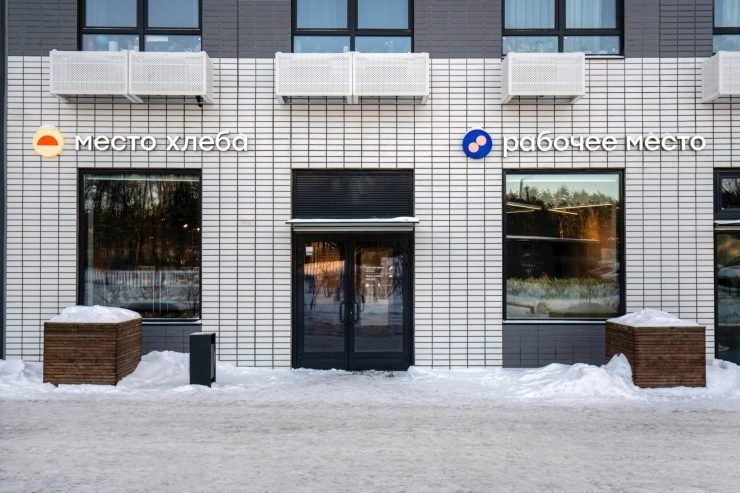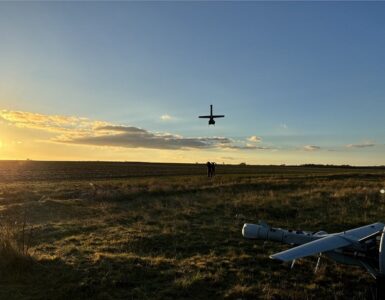SCIENCE
> Gamaleya Center in Moscow is testing a nasal vaccine against Covid. The Center’s director Alexander Gintsburg said the nasal vaccine, which the scientist says will help protect recipients against the Omicron variant, will be commercially available in Russia in three to four months. [Sources: TASS, RIA]
> Polish scientists identified a gene that doubles the risk of falling sick or dying from Covid. Researchers from Medical University of Bialystok say the gene could be present in about 14% of the Polish population and the finding could help determine severity of the illness in each patient. [Source: NDTV.com]
PAYMENTS
> Major banks could be left out of the government’s centralized biometric system, sources told RBC. The Russian government has been facilitating adoption of biometrics across a range of industries at least since 2018, but a unified biometric system would be another level of centralization. Pinning down an ownership structure and which market players have access to the data will move it one step closer to making this project a reality. [Source: RBC.ru]
> VTB Bank has charged users of the Face Pay biometrics payment system multiple times, promising to reimburse all erroneous charges. Moscow’s metro system introduced biometric payments in October 2021, and lenders like VTB are still working out the kinks and efficient ways to address customer complaints. [Source: VC.ru]
BIG TECH
> Yandex registered a company in Ireland to carry out “financial and investment activities.” Already one of the biggest internet companies in Europe, this is the latest effort to expand its operations abroad. [Source: Independent.ie]
> Germany is stepping up pressure on Telegram. German police accused the fast-growing messaging platform of not complying with requests to delete far-right content, according to a report in Die Welt on Monday. Earlier, the country’s interior minister said the country was not “ruling out” blocking Telegram altogether. [Sources: DW.com, Reuters]
> Viber messaging app opened an office in Moscow, its first legal entity in the country, to comply with the Russian localization law. The new law requires all foreign internet companies with a daily audience of over 500,000 users to open local offices in Russia. [Source: TASS]
CRYPTO
> Binance, a global crypto exchange, hired former government officials in Russia and Ukraine. The company recruited Olga Goncharova, director of the reports processing department at the Russian central bank as their new director of government relations in Russia. Vladimir Smerkis, cCo-founder of cryptocurrency platform Tokenbox and community of blockchain developers Definition, will join Binance as director of Binance Russia. In Ukraine, Kirill Khomyakov will take on the role of Binance’s general manager. [Source: Binance]
> Kosovo’s government put an immediate, temporary ban on bitcoin mining to alleviate its energy crisis, leaving the country’s crypto enthusiasts scrambling to sell their mining equipment or move to neighboring countries. [Source: The Guardian]
TRANSPORT
> Elon Musk replied on Twitter to Russian Tesla owners’ open letter pleading for “official Tesla presence in our country.” Last year Musk teased out the possibility of expansion to Russia, Kazakhstan and other CIS countries. [Source: RBC.ru]
COWORKING
> Russia’s biggest housing developer PIK launched an app leasing coworking space. The company, which is approaching requirements for the MSCI Index inclusion, plans to expand its application to bakeries, daycare centers, gyms and movie theaters. [Source: VC.ru, Reuters]
STARTUP SCENE
> Sber accelerator with 500 Global is accepting applications through Feb. 7. The selection process involves a two-week training bootcamp starting on Feb. 28, after which 50 startups will be selected for the core accelerator program. The range of solutions they’re looking for is not limited to fintech, but also includes healthcare, adtech, gaming and even ESG. [Source: Sber]
> Skolkovo Innovation Center is accepting applications for its small grants program, offering up to 1.5 million rubles in grants (almost $20,000) for qualifying startups. [Source: Skolkovo]






Add comment